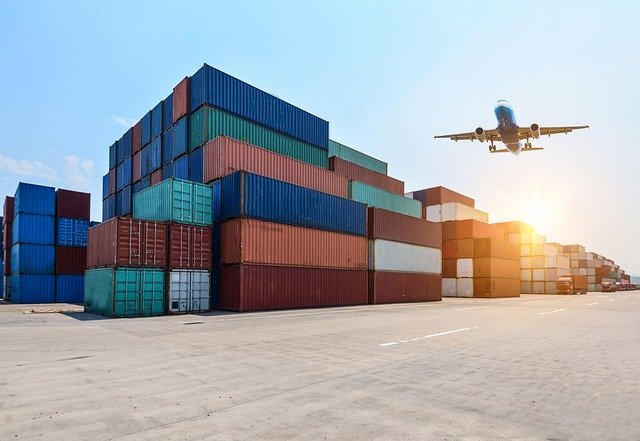-
Guidelines on administrative proceedings and fines and penalties under the Strategic Trade Management Act have been released
-
The STMA regulates the export, import, transit and transshipment, re-export and reassignment of strategic goods, software and technology and the provision of related services in order to prevent weapons of mass destruction from proliferating
-
Memorandum Circular No. 21-42 guides the Strategic Trade Management Office in the conduct of an investigation, administrative proceedings, and imposition of administrative fines and penalties
-
MC 21-42 was issued ahead of the lifting of the temporary suspension of administrative penalties on January 1, 2022
The Strategic Trade Management Office (STMO) has issued guidelines on administrative proceedings and fines and penalties under the Strategic Trade Management Act (STMA).
The STMA regulates the export, import, transit and transshipment, re-export and reassignment of strategic goods, software and technology and the provision of related services in order to prevent weapons of mass destruction (WMD) from proliferating.
Strategic goods are products that, due to security reasons or to international agreements, are considered to be of such military importance that their export is either subject to specific conditions or prohibited altogether.
Memorandum Circular (MC) No. 21-42 guides the STMO in the conduct of investigation, administrative proceedings, and imposition of administrative fines and penalties.
MC 21-42 was issued in time for the lifting on January 1, 2022 of the temporary suspension of administrative penalties. The imposition of penalties, except for warning letters/orders for corrective action, has been on hold since 2020 in light of the COVID-19 pandemic.
READ: Penalties for strategic trade act violation take effect in 2022
MC 21-42 applies to administrative proceedings under the STMA, the STMA implementing rules and regulations, guidelines, and other issuances of the National Security Council-Strategic Trade Management Committee (NSC-STMCom) and/or the STMO.
MC 21-42 covers any person operating within the Philippines who engages or intends to engage in:
- the export of strategic goods from the Philippines, including designated special economic and freeport zones;
- the import of strategic goods into the Philippines;
- the transit or transshipment of strategic goods through Philippine territory; or
- in providing related services.
It also covers all Filipino persons providing these services wherever they are located, and any person engaged in:
- the re-export of strategic goods imported from the Philippines to a foreign country and the reassignment of strategic goods imported from the Philippines to a new end-user in the country of import, subject to authorization under the STMA; and
- activities that fall under any of the four conditions set forth in Section 11 (End-use controls) of the STMA.
Under MC 21-42, administrative violation refers to an act committed or omitted by any person in violation of the STMA, its IRR, and guidelines and issuances of the NSC-STMCom and/or the STMO.
Causes for investigation
An administrative investigation may be conducted by STMO’s Investigation and Compliance Division to determine if an administrative violation has been committed.
It may arise from the following:
- The conduct of an audit, compliance visit, or on-site inspection by the STMO
- Information acquired from STMO’s Registration and Authorization Division and/or Policy and Enterprise Relations Division
- A Voluntary Self-Disclosure by the respondent
- Information, intelligence report received from, and/or request for an investigation by other government agencies
- Information, intelligence report received from, and/or request for an investigation by other local and/or international counterparts
- A complaint, information, and/or request for investigation from any person other than those already mentioned
- Any other analogous circumstance
After finding evidence that the respondent committed violations as charged, the STMO director will issue a decision imposing the proper administrative sanctions.
The respondent may file a motion for reconsideration within 15 days from receipt of the decision. If no motion for reconsideration or no administrative appeal has been filed within the prescribed period, the decision will immediately become final and executory.
STMO will impose on any person found to have committed violations under the STMA the following administrative penalties:
- Issuance of Warning Letter and/or Order for Corrective Action
- Limitation, revocation, or annulment of any authorization and/or registration
- Imposition of fines of up to P250,000 or twice the value of the strategic good or related service under the contract or as assessed by the STMO
- Upon request by the Securities and Exchange Commission and/or Department of Trade and Industry(DTI) or any other relevant agencies, order the cancellation or suspension of the registration and authorization/license to operate of the partnership, corporation, association, and other juridical entity
The imposition of an administrative penalty is without prejudice to the filing of appropriate criminal charges against the persons responsible for the violation.
The penalty and fines will be based on the nature, gravity, frequency of the offense, and attending circumstances.
Any person upon whom administrative penalties have been imposed still has the right to appeal.
An office under the DTI, the STMO is the executive and technical agency of the government that establishes the management systems for trade in strategic goods pursuant to STMA.
STMA, or Republic Act (RA) No. 10697 (An Act Preventing the Proliferation of Weapons of Mass Destruction by Managing the Trade in Strategic Goods, the Provision of Related Service, and for Other Purposes), was signed in 2016 to comply with United Nations (UN) Security Council Resolution No. 1540.
The UN resolution “imposes binding obligations on all states to adopt legislation to prevent the proliferation of nuclear, chemical and biological weapons, and their means of delivery, and establish appropriate domestic controls over related materials to prevent their illicit trafficking.”
Under the law, traders, transport companies, and logistics service providers moving strategic goods need to be registered and licensed with the STMO.
The law is being implemented in phases, with exports as the first covered sector. – Roumina Pablo





